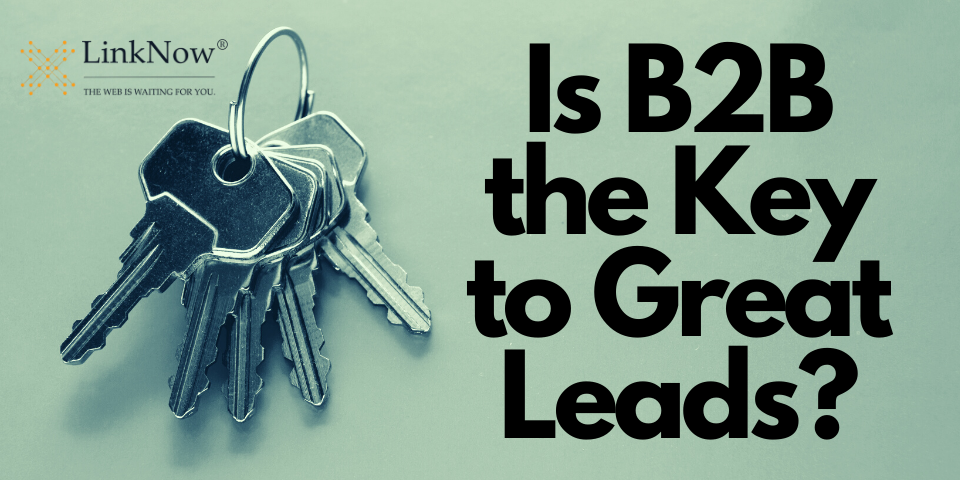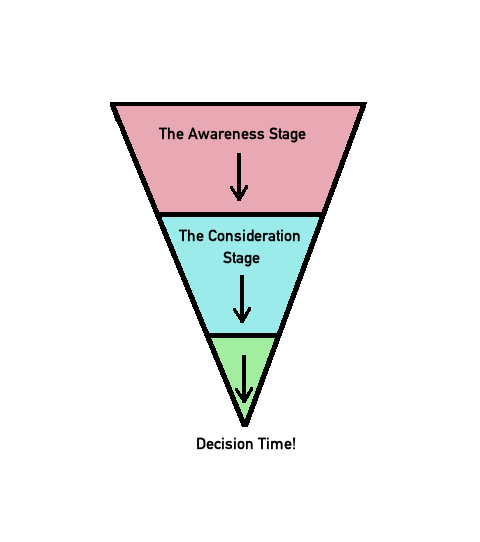
As a business owner yourself, you know that business owners have different expectations, objectives, and concerns than regular consumers. They are attracted to marketing strategies that speak to their need for good ROIs, financial incentives, solutions to problems, and expertise. By understanding your audience—and their expectations— you will create a marketing strategy that converts because it convinces.
In this blog, we’re going to outline everything you need to know about business-to-business (B2B) marketing so that you can create a strategy that will generate leads from your target audience.
What Is B2B Marketing and How Does It Differ from B2C Marketing?
B2C, or, business-to-consumer marketing is a marketing strategy that’s targeted toward consumers rather than representatives of other businesses. Consumers purchase products and services for themselves as individuals, often for emotional reasons. Businesses and their representatives purchase products on behalf of the goals and objectives of the organization.
B2B, or business-to-business marketing is marketing that’s directed toward business owners or organizations. The goal of B2B marketing is to anticipate the way that businesses make decisions. Where B2C marketing often relies on quick emotional responses that lead to conversions (AKA leads), B2B marketing recognizes that business decisions are usually calculated and assessed by one or more levels in a chain of command.
The following list includes essential considerations of B2B marketers:
- • ROIs (return on investments)
- • Efficiency and expertise
- • Financial incentives
- • Target markets
- • Long-term solutions
- • Business relationships
- • Solutions to concrete problems
While B2C marketing may include some of these considerations, businesses typically take a more calculated, professional, and educated approach to purchases. It’s all about understanding what motivates a business to make a purchase. Knowing these motivations and tactfully addressing them in your marketing will ultimately be the key to your success.
The B2B Goal: Know Your Audience
Once you’ve figured out who your ideal client is and what motivates them to buy your products, your next goal is to map out the “buyer’s journey”. Each buyer’s journey has different stages that each part of your B2B marketing strategy should target. These stages include the Awareness Stage, Consideration Stage, and Decision Stage.

Know what stage your target market is at in their buyer's journey.
1. The Awareness Stage
At this stage, your potential client is trying to understand the nature of the problem they are facing. This stage involves researching what other companies have done to resolve the problem and finding informational articles that break it down for them.
2. The Consideration Stage
The client now understands their problem and are shopping around for possible solutions. This is one of the key moments when B2B content marketing comes into play. Your goal is to show why your company solves their problem better than the competition.
3. The Decision Stage
The client is moving toward a decision by weighing all their options. At this point in the buyer’s journey, they already know what they need and which companies can help them. Tactics like Pay-Per-Click campaigns can be very effective because they offer a condensed and targeted approach that encourages buyers to buy now.
Three Tactics for B2B Marketing
Now that you know your audience and where they are in their buyer’s journey, it’s time to organize your own strategy. As a B2B marketing firm, LinkNow Media has a lot of experience organizing effective campaigns that generate leads. In our experience, successful B2B marketing requires a three-pronged approach: website, content, and Pay-Per-Click.
1. An SEO Optimized Website That Speaks to Your Audience
The first thing you need is a website that is SEO optimized to rank well on Google. By hiring a professional SEO and web design company like LinkNow Media, you will increase your online visibility in search engines and encourage potential clients to move from the Consideration Stage to the Decision Stage.
Target your website to industry professionals. If relevant, include pictures of your best work along with carefully written descriptions of your services. Because you are addressing clients who are familiar with industry jargon, be sure to include relevant keywords. However, don’t overdo it: getting too technical can alienate potential buyers. Make sure to strike a balance that demonstrates your professionalism and expertise without overcomplicating things.
And don’t forget to include testimonials! In 2020, clients want to see reviews and testimonials before they make a purchase.
2. Content Marketing
Your website needs to be paired with a B2B content strategy. Where traditional marketing uses ads to interrupt people in their day to day activities, content marketing assumes that the target audience is already interested in the product.
To a large extent, content marketing is based on carefully chosen keywords. When buyers search Google for service providers, they use keywords. By including relevant keywords in your content, you show Google and your potential clients that your website is relevant to those searches. In this way, content is designed to make your website searchable and to convince your clients to make a decision on your product.
3. Pay-Per-Click Campaigns
Also known as PPC, Pay-Per-Click allows businesses to pay for the top spot on the Google search results page. Rather than focussing on the Consideration Stage, PPC is meant to encourage users to make a decision and buy now.
Here at LinkNow, our PPC campaigns consistently generate leads at a faster rate than other B2B marketing tactics. We have spent years honing our PPC strategy around the needs, goals, interests, and expectations of our clients’ ideal audiences. Our conversion pages are so successful that some of our clients are receiving more business than they can handle.
LinkNow Can Help You Reach Your Business Customers with B2B Marketing
LinkNow Media offers comprehensive B2B marketing services that are carefully tailored to each individual business. We’ve put in the time to carefully work out which strategies work and which ones don’t. We offer a no-nonsense approach that puts clients’ success first.
If you want more information about our websites, content marketing, and PPC campaigns, leave us a comment below, and we’ll get back to you straight away. Or, give us a call to speak with one of our SEO marketing experts at 1-888-667-7186.

What’s your take on social media for B2Bs, especially LinkedIn? Do you think that’s a good channel for a B2B brand to build its presence and earn social proof? Or is it best sticking to SEO, ads and long-form content?